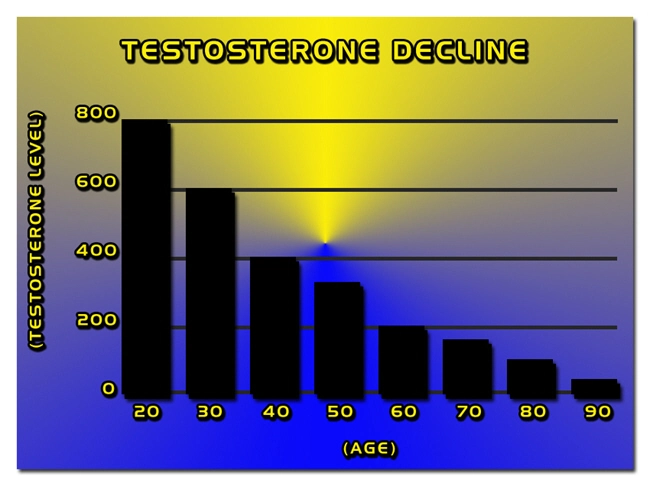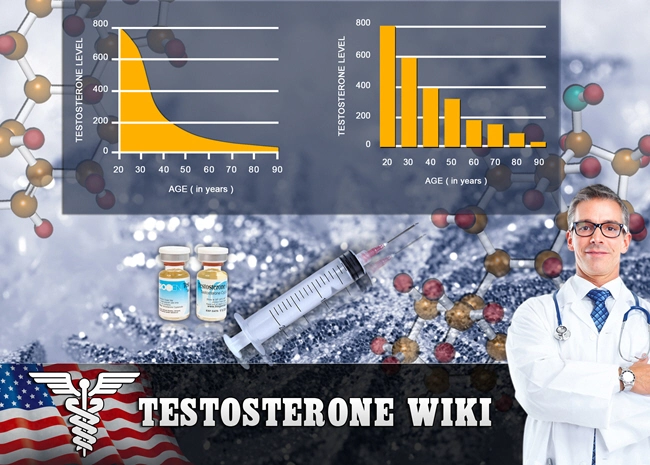
Video Link: https://vimeo.com/284828563
Video Download: Click Here To Download Video
Video Stream: Click Here To Stream Video
Video Link: https://vimeo.com/284827413
Video Download: Click Here To Download Video
Video Stream: Click Here To Stream Video
Few topics in the medical world provoke as much controversy, misinformation, and fear-mongering as Human Growth Hormone (HGH) Replacement Therapy and Testosterone Replacement Therapy (TRT). Presented here is a reasonable, level-headed discussion of the many aspects of these two hormone restoration therapies.
In his in-depth article on Human Growth Hormone (HGH) which appeared in the March 29, 2012, issue of Esquire magazine, Craig Davidson takes a fair and level-headed approach to this controversial topic.
He begins by clearing up the misconception about hormones: performance-enhancing drugs (PED's) and testosterone and growth hormone replacement therapy are lumped together in the minds of the casual observer.
Athletes are continually in the news for abusing anabolic steroids, testosterone, and growth hormone. This not only causes many to feel that they are illegal (not true; all of these substances are legally available by prescription), but most people fear them as well.
But we tend to fear the things that we are ignorant of, and Davidson presents the other side of growth hormone replacement therapy: the new generation of doctors that are using synthetic hormones as a weapon in the battle against the hideous disease of aging. In short, when used correctly, they are nothing short of a miracle.
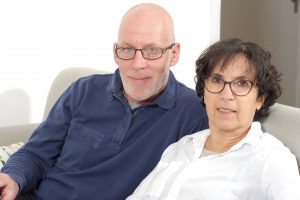 He tells the story brilliantly, beginning with a heartrending letter to his aging father. Davidson is concerned about a scab on his dad's hand that has been stubbornly clinging to his skin for weeks.
He tells the story brilliantly, beginning with a heartrending letter to his aging father. Davidson is concerned about a scab on his dad's hand that has been stubbornly clinging to his skin for weeks.
He flashes back on memories of his young father recklessly pulling off athletic feats that would result in the usual scrapes and bruises, which would heal quickly.
And now, he can't help himself from thinking about the contrast of his dad's youthful vigor with his current physical condition.
Davidson knows that it's natural. After all, his father has hit his mid-sixties, and Davidson himself is feeling the effects of aging in his mid-thirties. But he can't imagine the world without his beloved father in it.
Davidson knows that conventional wisdom is to “shut up about getting old.” But he has been delving into the world of medical advancements, and holds out hope...however slim...that the monster of aging and all its afflictions can be kept at bay. He, therefore, begins to share with his dad what he has learned.
His first stop was the waiting room at the Master's Clinic (Vitality for Life). The clinic's director is Dr. Lawrence Komer.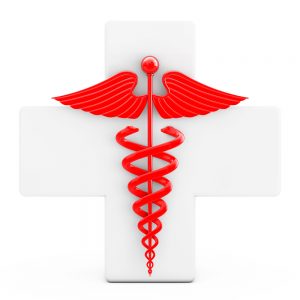
The hospital's mission is combating andropause, which is the male counterpart to menopause. The clinic specializes in testosterone replacement therapy since that is one of the primary hormones that men lose as they age.
The decline begins at around age 30 and continues its march to destruction at approximately 10% per decade.
The consequences of male hormone loss are devastating: Inability to experience a night of deep, restorative sleep, mental fog, and impaired memory, few if any morning erections, flabby, sagging muscles, constant joint aches and pains, chronic fatigue, and deep-seated depression that often sets in as men see their masculinity recede.
Dr. Komer sees these symptoms only as a sign of hormone deficiency and is, therefore, a treatable condition.
But unlike the majority of MDs, he does not immediately reach for the prescription pad. Instead, he replaces diminished hormones.
The word hormone is of Greek origin, and means “stir up.”
Hormones are our powerhouses; they get us going, make us grow, keep our metabolism revved up, 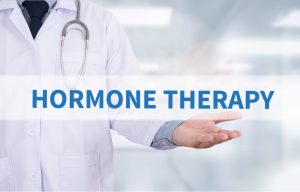 dictate our body temperature and weight, and control our body's response to stress.
dictate our body temperature and weight, and control our body's response to stress.
An excellent way to understand them is this: they are our body's messengers, and they influence every single cell, tissue, organ, and function in our bodies.
Their importance cannot be over-emphasized. Every hormone is the equivalent of a key; without a companion lock, it won't work.
Here's the problem. When men reach a certain age, where growth stops and fertility is not required, we don't produce as many hormones.
And even if we did, our hormone receptors become less sensitive as we age. The keys no longer work on the locks. When this happens on more and more cells, with more and more hormones, disease gains a foothold.
Davidson next reminds us that hormone replacement is nothing new. It is a topic that has intrigued scientists for centuries.
In spite of their early and mostly futile efforts, they had some of the puzzles figured out, in essence setting the stage for our modern era.
Back to the clinic.
After a series of tests, including current levels of total testosterone, bioavailable testosterone, estradiol, prolactin, luteinizing hormone, PSA, thyroid-stimulating hormone, DHEA, live enzymes, and cortisol, an individualized treatment program is planned.
 According to one of the MDs on the clinic's staff, “Young bodies fix themselves quickly, but as time goes by, it gets harder. You surrender your zest, your twinkle, your pep, your robustness."
According to one of the MDs on the clinic's staff, “Young bodies fix themselves quickly, but as time goes by, it gets harder. You surrender your zest, your twinkle, your pep, your robustness."
When reminded that this is nature's plan, he retorted “So we must contest nature.”
After the patient receives his treatment plan, he is sent off with detailed instructions concerning the treatment protocol and will be seen again in six weeks. The treatment regimen is anything but a “cookie-cutter, one-size-fits-all” approach.
Davidson touches on the “lingering stigma” associated with hormone replacement therapy.
This is due to its being tied in with steroids being abused by professional athletes. In the minds of most people, using PED's is both cheating and illegal.
PED use is against the rules of the individual sport sanctioning bodies, and violations of the rules are punished, at times severely. But when the average person uses HGH or testosterone under the supervision of a medical professional and is acquired legally by prescription, it is not illegal.
Also, most of the damage from these substances is directly due to abuse, taking far more than the recommended dosage.
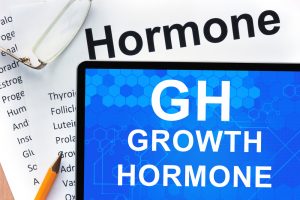 The pituitary gland produces Human Growth Hormone, and HGH levels are highest in our younger years.
The pituitary gland produces Human Growth Hormone, and HGH levels are highest in our younger years.
It is responsible for the growth of our bones, muscles, tissues, and the break down of fat. But, similar to testosterone, growth hormone also slows down at approximately age 30 and continues its decline at around 10% a year.
Davidson recalls the decade of the 1980s when HGH was harvested from dead bodies.
This was extremely dangerous and led to many incidents of Creutzfeldt-Jakob disease, which is a rogue protein that eats up your brain.
But now, it is manufactured synthetically.
One user of HGH (a professional wrestler) spelled out the difference between HGH and steroids: “with steroids, you feel something.
An increase in sex drive, changes your musculature. But with HGH it's more about what you don't feel. Aches and pains disappear.
Energy levels come up. It speeds healing time. I sleep so deeply. As my career progresses further into my forties...I need it, man.”
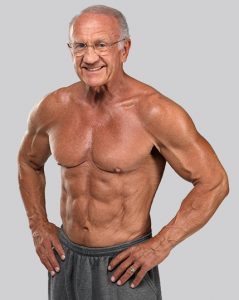 Davidson's next stop is with Dr. Jeffery Life, a physician in Las Vegas. You may recognize him: his picture has appeared in many publications: a heavily-muscled man with an old man's face.
Davidson's next stop is with Dr. Jeffery Life, a physician in Las Vegas. You may recognize him: his picture has appeared in many publications: a heavily-muscled man with an old man's face.
As Davidson points out: “The image is somehow wrong. Like seeing an absurdly muscled child; Human beings on either end of the age spectrum only shouldn't look that way.”
“Sure, some people think it's fake," says Dr. Life, who was seventy-two at the time of the picture.
“Until they meet me.” Dr. Life emphasizes that he uses controlled amounts, never prescribing anything near the levels that professional athletes inject. And this makes it perfectly legal.
However, Dr. Life is quite clear about growth hormone not being a quick fix. He had to make drastic changes to his diet and exercise routine to get the results he did. This meant hard-core weight-lifting, swallowing dozens of vitamins and other supplements daily, and cutting out trans fats from his diet.
Even with all this, Dr. Life is, according to Davidson, showing signs of the wear and tear that aging brings.
His skin has a few wrinkles, and his body has a few sags. However, he is still in remarkable condition and is a walking testimonial to the effectiveness of HGH replacement therapy.
Dr. Komer, the doctor at the Master's Men's Clinic, mentioned earlier, was a gynecologist before he got into andropause treatment. 
“I've been working with female hormones for more than thirty years," he says.
“Male hormones are similar. It's nothing but a mental step sideways.”
Women were at the forefront of hormone replacement therapy. In the 1990s, postmenopausal women were given hormone replacement therapy to lessen the side effects they were dealing with.
However, it apparently increased the risk of breast cancer. This is where so much of the wariness and scrutiny about male hormone replacement came from.
But there is an explanation. All too often, estrogen was handed out in a “one-size-fits-all” manner, with little or no attention given to the individual woman.
As long as the person is treated as an individual, and the HGH program is tailor-made just for them, hormone replacement therapy is safe and can deliver benefits bordering on miraculous.
Dr. Komer is an advocate of “interventional medicine.” In other words, start hormone replacement therapy before illness strikes. He points out that many doctors are unaware of the importance of hormones.
He says that “Doctors only see things from the point of view of their specialization...patients are a bowel, a heart, a brain. There's little sense of the linkages between them. Hormones are that link. Too often the only cure is pharmacological intervention: Give the patient a pill. If all you've got is a hammer, everything starts looking like a nail, right?”
Davidson next introduces us to another advocate of hormone replacement therapy: Dr. J. Matthew Andy, who is the host of The Dr. Andy Show on News Talk FM 95.5 from Bloomington, Illinois.
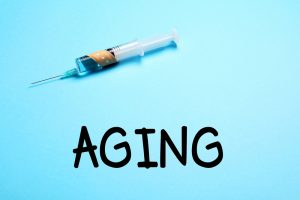 Like Dr. Komer, Dr. Andy believes in the prevention of disease by hormone regulation.
Like Dr. Komer, Dr. Andy believes in the prevention of disease by hormone regulation.
Dr. Andy states that “The modern medical model holds that you get sick, then a doctor tries to fix you.
Here's a crazy idea: Why don't we avoid letting you get sick in the first place?”
According to Dr. Andy, many conditions: menopause, diabetes, thyroid disease, and contraception require the regulation of hormones.
Why, he asks, should testosterone be any different? He goes on: “Instead of taking Wellbutrin for your mood, Lipitor for your cholesterol, Cialis to give your poor penis a lift, and Lunesta to fall asleep, why not try something that helps with all of that?”
Homeostasis is the key, according to Dr. Andy.
Webster's dictionary definition of the word is the tendency toward a stable equilibrium. He feels that physicians should seek to achieve natural harmony in patients.
“Humans don't age symmetrically, parts,” he says. “Parts of us survive longer than other parts. We live longer than our glands do. We die in pieces.”
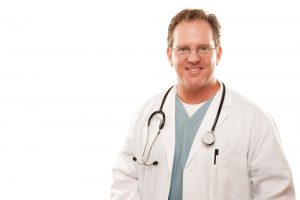 Achieving and maintaining that equilibrium is Dr. Andy's mission. But he, and other doctors like him, have their share of critics, and quite often the critics are their medical colleagues.
Achieving and maintaining that equilibrium is Dr. Andy's mission. But he, and other doctors like him, have their share of critics, and quite often the critics are their medical colleagues.
This is nothing new. The medical establishment, like any other large organization or group, has historically been slow to adopt change, even something as straightforward and basic as hand washing after seeing a patient.
To be fair, Davidson astutely points out that at times, this is the safest way to go.
We don't know the long-term effects of hormone replacement, just like we don't know the long-term effects of several other medical procedures, too numerous to list.
But there are short-term possible side effects of hormone replacement therapy: Thickened blood and blood clots, spikes and dips in cholesterol, hypertension, sleep apnea, irritability, aggression, suicidal thoughts, hypersexuality, infertility, testicular atrophy, acne, greasy skin, excessive sweating, and body odor.
However, these almost always occur when a patient exceeds his dosage or doesn't show up for his follow-up appointments. But the fact remains that testosterone carries the potential for abuse, and should not be taken lightly.
Davidson discusses aging. Human life spans follow a predictable arc. We are born, grow up, grow stronger and smarter, hit our peak, then the decline begins.
Next, he delves into the question of “why do our cells have to age?”
Some say it is due to an accumulation of rogue molecules called free radicals, which release toxins in our bodies and attack our immune systems.
Others believe our genes have a built-in kill switch.
Our body's a giant auditorium that is hosting a wild party. Then, at the given hour, the janitor shows up, announces that the party's over, then turns off the lights.
Whatever the cause, the inevitable outcome of aging is what these doctors are determined to battle.
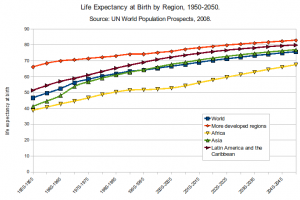 Davidson mentions one less than rosy fact: if they succeed, and our life spans are several hundred years or even a thousand years long, birth rates would drop astronomically, which leads to an unintended consequence.
Davidson mentions one less than rosy fact: if they succeed, and our life spans are several hundred years or even a thousand years long, birth rates would drop astronomically, which leads to an unintended consequence.
To quote Davidson: “a bunch of doddering, mothball-smelling, millennium-year-olds tottering about in a world cleansed of children's laughter. A bit creepy, for sure. But so many people are willing to try to stick around and see what that world would be like.
Davidson finishes with the completion of his letter to his dad. He flashes back on his childhood memories of all the cool things his dad taught him, and his father's strict upbringing.
He feels that may be the janitor is starting to turn dad's lights out one by one. And Davidson knows that may be true. But he wants his father to be as healthy as possible until that last day.
He urges his father to consider hormone replacement therapy: “If you do it under a responsible physician, it won't harm you, and there's a good chance it may even help you. A lot, maybe. We've discovered how to introduce only a handful of hormones safely. As our knowledge advances, we may be able to implement the entire hormone spectrum, the results of which could be extraordinary.”
With love, Craig
Reference
Miracle The human body, that is — it's a miracle.
https://www.esquire.com/lifestyle/health/a13225/hormone-replacement-therapy-men/
Contact Us Today For A Free Consultation
Dear Patient,
Once you have completing the above contact form, for security purposes and confirmation, please confirm your information by calling us.
Please call now: 1-800-380-5339.
Welcoming You To Our Clinic, Professor Tom Henderson.

- New Research on Hormone Replacement Therapy [Last Updated On: December 29th, 2024] [Originally Added On: March 12th, 2021]
- LCN2 Hormone Suppresses Hunger and Stops Cravings! [Last Updated On: January 27th, 2025] [Originally Added On: April 7th, 2021]
- Melatonin: The Body's Master Clock [Last Updated On: December 27th, 2024] [Originally Added On: April 8th, 2021]
- The Importance of Luteinizing Hormone [Last Updated On: December 28th, 2024] [Originally Added On: April 11th, 2021]
- Andropause From The Wikipedia Encyclopedia [Last Updated On: December 29th, 2024] [Originally Added On: April 12th, 2021]
- Finally Explained: The Mysterious Pineal Gland [Last Updated On: December 28th, 2024] [Originally Added On: April 30th, 2021]
- Hormone Therapy May Help Cut Alzheimer's Risk [Last Updated On: November 24th, 2024] [Originally Added On: May 18th, 2021]
- Androgel : Men Getting Their Mojo Back! [Last Updated On: May 12th, 2025] [Originally Added On: May 21st, 2021]
- HGH Secretagogue [Last Updated On: November 24th, 2024] [Originally Added On: May 22nd, 2021]
- Hormone Replacement Therapy Safe, Study Suggests [Last Updated On: May 17th, 2025] [Originally Added On: May 24th, 2021]
- The HGH Recommended Medical Dosage - The Importance of Blood Work [Last Updated On: November 24th, 2024] [Originally Added On: May 25th, 2021]
- Act Now to Prevent the Increasingly Common Condition of Hypothyroidism [Last Updated On: October 23rd, 2025] [Originally Added On: June 21st, 2021]
- A Toxic Hormone is Altering the Sex and Reproduction of Aquatic Life in United States Streams [Last Updated On: November 24th, 2024] [Originally Added On: August 16th, 2021]
- New Research: Cognitive Therapy Could Reduce Menopausal Hot Flashes [Last Updated On: November 23rd, 2024] [Originally Added On: August 16th, 2021]
- Heart Benefits From Hormone Replacement Therapy? [Last Updated On: November 22nd, 2024] [Originally Added On: August 18th, 2021]
- Risks of Hormones in Early Menopause Challenged [Last Updated On: November 21st, 2024] [Originally Added On: August 24th, 2021]
- Comprehensive Hormone Replacement Therapy with Tesamorelin [Last Updated On: May 5th, 2025] [Originally Added On: September 18th, 2021]
- Early Hormone Replacement Therapy May Lower Alzheimer Risk [Last Updated On: November 14th, 2024] [Originally Added On: October 25th, 2021]
- Stimulate HGH: Growth Hormone Secretagogue: Sermorelin Acetate [Last Updated On: November 20th, 2024] [Originally Added On: October 25th, 2021]
- Growth Hormone Therapy Reverses Biological Age In Groundbreaking Study [Last Updated On: November 11th, 2024] [Originally Added On: October 25th, 2021]
- Estrogen HRT May Reduce Breast Cancer Risk [Last Updated On: November 9th, 2024] [Originally Added On: October 26th, 2021]
- Hormone Replacement Therapy is Safe [Last Updated On: November 15th, 2024] [Originally Added On: October 26th, 2021]
- The Benefits of IGF-1 [Last Updated On: November 10th, 2024] [Originally Added On: October 26th, 2021]
- Insulin-Similar Growth Factor Benefits [Last Updated On: November 16th, 2024] [Originally Added On: October 26th, 2021]
- Growth Hormone Dosage [Last Updated On: November 8th, 2024] [Originally Added On: October 26th, 2021]
- Growth Hormone Sprays [Last Updated On: November 7th, 2024] [Originally Added On: October 26th, 2021]
- The Best Ways to Boost Growth Hormone [Last Updated On: November 13th, 2024] [Originally Added On: October 26th, 2021]
- Growth Hormone Explained [Last Updated On: November 17th, 2024] [Originally Added On: October 26th, 2021]
- Growth Hormone and Gene Therapy [Last Updated On: November 6th, 2024] [Originally Added On: October 26th, 2021]
- Growth Hormone and the Law [Last Updated On: December 5th, 2025] [Originally Added On: October 27th, 2021]
- Growth Hormone and the Hypothalamus Gland [Last Updated On: December 4th, 2025] [Originally Added On: October 27th, 2021]
- Growth Hormone and Testosterone Replacement Therapy [Last Updated On: January 2nd, 2025] [Originally Added On: October 27th, 2021]
- Growth Hormone and Pneumonia [Last Updated On: December 3rd, 2025] [Originally Added On: October 27th, 2021]
- An Introduction to Growth Hormone [Last Updated On: December 2nd, 2025] [Originally Added On: October 27th, 2021]
- General Physician Versus Hormone Specialist – Some Symptoms Require a Specialist to Heal [Last Updated On: September 6th, 2025] [Originally Added On: March 18th, 2022]
- Hormone Impacts And Function Of HGH [Last Updated On: December 20th, 2024] [Originally Added On: July 10th, 2022]
- Cheaping Out on HGH Therapy – JUST DON’T DO IT [Last Updated On: September 18th, 2025] [Originally Added On: July 12th, 2022]
- Slow Aging with Growth Hormone [Last Updated On: May 27th, 2025] [Originally Added On: July 17th, 2022]
- Hormone Therapies: How They Have Evolved and Are Evolving [Last Updated On: September 10th, 2025] [Originally Added On: February 10th, 2023]

